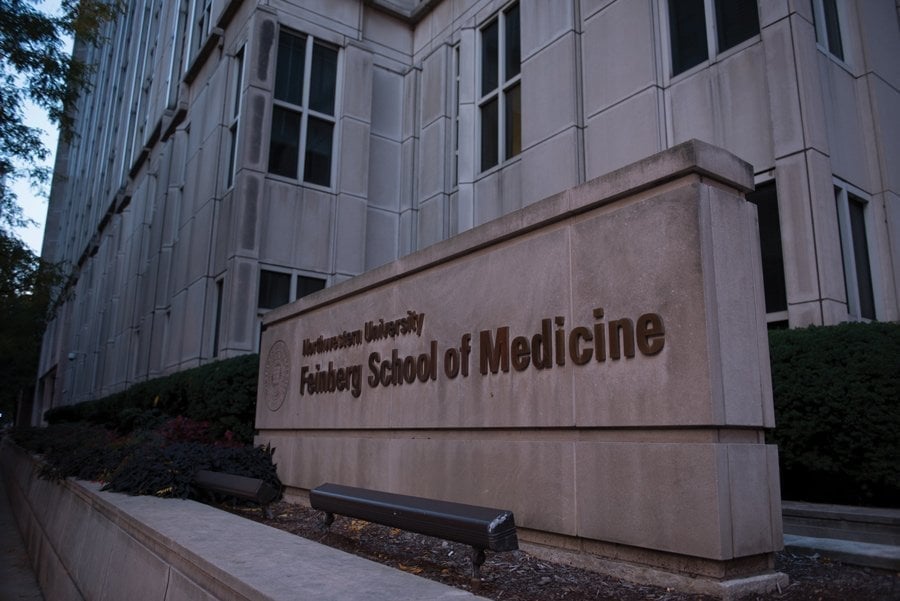NU researchers discover new therapeutic drug that could treat autism subtype
Daily file photo by Katie Pach
The study screened over 320 FDA-approved drugs.
February 20, 2023
A new therapy could treat Phelan-McDermid syndrome, a rare subtype of autism spectrum disorder, according to a December study by a group of Northwestern researchers.
Before the study, there was no drug or therapy specifically designed to treat patients with Phelan-McDermid syndrome.
The new therapeutic drug addresses cognitive function and motor behavior deficiencies, among other symptoms associated with Phelan-McDermid syndrome.
Director of the Center for Autism and Neurodevelopment and neuroscience Prof. Peter Penzes led the investigation and authorization of the study. The findings were published in Molecular Psychiatry — Nature Publishing Group’s peer-reviewed scientific journal.
The study began with “JB2,” a compound drug developed by and named after McCormick Prof. Jeffrey Burgdorf.
Burgdorf led the invention of the drug in other studies related to stress and memory, according to Penzes.
Penzes and his team collaborated with Burgdorf and biomedical engineering Prof. Joseph Moskal in the study and found JB2 improved mice’s cognitive function.
The mice’s behavior suggested the drug could address certain challenges autistic people face, Penzes said.
“We looked at learning and memory first because intellectual disability is one of the main clinical features of Phelan-McDermid syndrome,” Penzes said. “Then we also looked at social behavior because that’s supposed to model social deficits in patients with autism.”
Moskal and Burgdorf have spent the past two decades researching synaptic plasticity modulators like JB2 — which improves cognitive function by facilitating neural communication.
The paper also focuses on high-quality motor activity. Burgdorf said mice with poor gait performed simple tasks and moved more effectively after being injected with JB2.
“It’s directly comparable to motor function in humans,” Burgdorf said. “We actually can also measure these things, not just based on behavior, but (also) by recording electrical signals from muscles.”
He said while the study is focused on symptoms in autistic children, he hopes JB2 can ultimately be used to treat patients of all ages across the spectrum.
According to Penzes, it is far more likely the Food and Drug Administration approves the treatment for adult patients than for children patients.
“Most people, when you mention autism, they think about children,” Penzes said. “But those children with autism, they grow up to be adults with autism … So it would be actually very useful if one could use treatments of this sort for adults as well.”
The Falk Center for Molecular Therapeutics, where Moskal serves as director and Burgdorf as associate director, has a proven track record of moving swiftly from developing a therapeutic to applying it in clinical trials, according to Moskal.
He said that with proper funding and support, JB2 could be approved by the FDA in as soon as a year or two.
“We know that the next big step is proof of concept, which we feel pretty good about, and then going and getting the drug approved by the FDA for clinical trials,” Moskal said.
Email: [email protected]
Twitter: @JulianAndreone
Related Stories:
— Scientist shares nutrient therapies for autism, ADHD, mental disorders
— Feinberg professors win awards to research autism, Crohn’s disease
— In Focus: As Lyrica profits dry up, Northwestern seeks another ‘blockbuster’ drug


